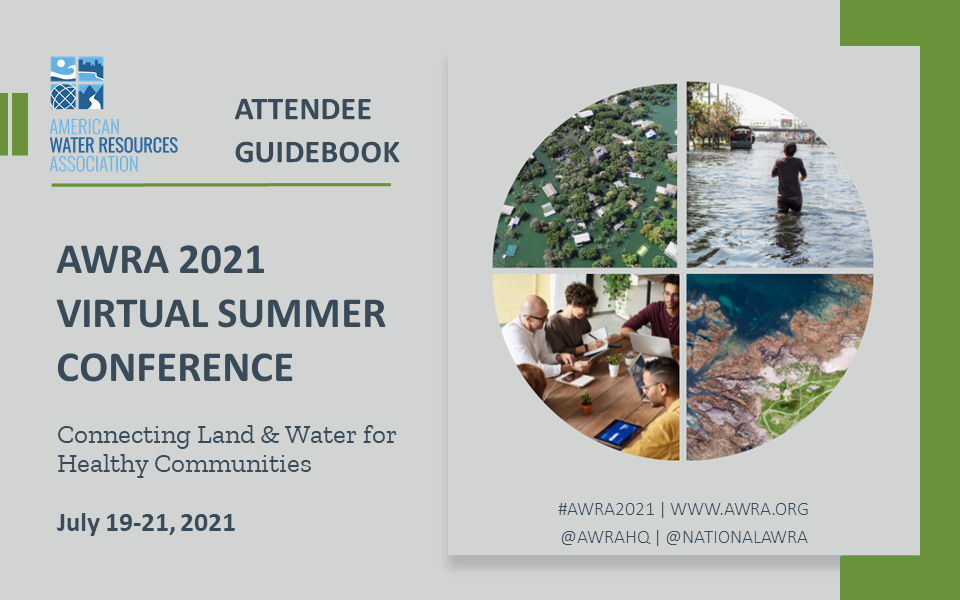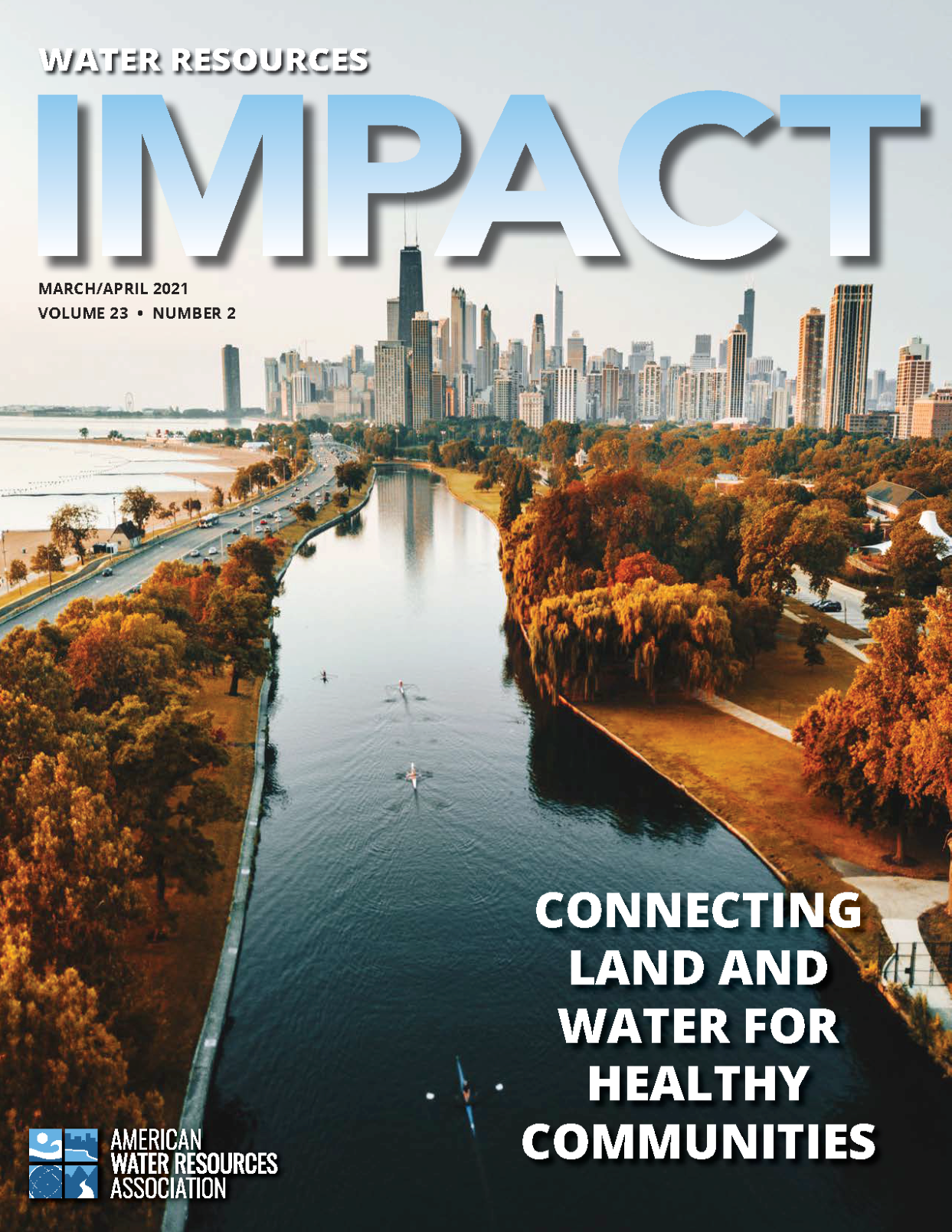IMPORTANT: In order to receive important communication from the AWRA Team about your conference participation, you must add [email protected] and [email protected] to your safe sender list.
Location
Virtual: This conference is being conducted via Zoom Meetings. Once you register for the conference, you will receive an automatic email confirmation that will give you instructions on how to access the main conference room. If you did not receive your email confirmation and have registered for the conference, please email [email protected].
 Download our Attendee Guidebook to familiarize yourself with this conference format. Sessions will be recorded and available for registered attendees.
Download our Attendee Guidebook to familiarize yourself with this conference format. Sessions will be recorded and available for registered attendees.
Registration & Deadlines
Registration Note & Cancellation Policy
All conference participants (presenters, moderators, panelists, etc.) must register at the appropriate registration rate. The registration fees are the major source of funding for the Conference, and the sharing of registrations is prohibited - every person attending the conference must register. For presenters, if two or more individuals will be presenting, each individual must register for the conference. This includes: all technical session presenters (If one individual is pre-recording the session and another individual will be live for the Q&A, then they both must register); all panel session presenters; and all poster session presenters.
Cancellations must be made in writing. We will be glad to transfer to someone else by 07/14/2021. Those cancellations received by July 14, 2021 will be subject to a processing fee of 25% of total fees. No refunds will be given after July 14, 2021 - No exceptions! Refunds will be processed after the conclusion of the conference.
Stay tuned for more information.
Make sure you are signed up to receive AWRA News and follow us on Facebook: @NATIONALAWRA and Twitter: @AWRAHQ. Download the conference flyer and share within your network.
Why Attend?
This conference aims to bring together stakeholders across multiple disciplines and types of organizations and professions to address the design, integration, and implementation of the programs necessary to better connect land and water planning and policy. The management of land and water are intimately related, yet these connections are not adequately recognized, and the individuals working in these interrelated areas are often disconnected. How we use our land determines the demand for water, impacts water quality, and can impact water availability and aquatic ecosystems. Likewise, water is critical to the sustainability, resilience, and quality of life in our communities.
This specialty conference will bring together practitioners and researchers across the intersecting areas of water management, land planning, natural resources policy, and related technical and design professions. Sessions will be multi-disciplinary and will focus on understanding the integrated nature of our challenges, goals, and programs. Topics will include:
- land and water aspects of water supply,
- water demand management,
- stormwater management,
- wastewater treatment,
- community planning and design,
- conservation, and
- integrated “one water” approaches.
With a focus on the relationships among water resources management, utility operations, and land use planning and design, attendees will come away with a new understanding and strengthened personal networking connections across the disciplines and professions critical to water and community sustainability. We look forward to your participation.

Also, a
special free edition of the March/April 2021 Water Resources IMPACT Magazine is now available as a companion to this Virtual Summer Conference. Guest editor, Mike Antos of Stantec says, "Arguably, managing water separately from land was one of the great missteps of the 20th century. Turning our eyes to past practices, and recognizing the role watersheds play in the health of the environment and our communities, we see that land and water must be managed together as integrated social-natural systems."
Access the full issue here.